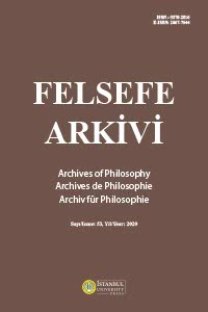Platon’un Devlet Diyaloğu Bağlamında Eğitim Anlayışı
Platon’un Devlet Diyaloğu bağlamında eğitim anlayışını
analiz edeceğimiz bu yazıda, eğitimin filozofun felsefesindeki yerini de
belirlemeye çalışacağız. İdealizmin kurucusu sayılan Platon, felsefesi kadar
eğitim anlayışıyla da incelenmeye değer olduğundan, araştırmamızın iskeletini
oluşturmaktadır. Bu bağlamda, Devlet başta olmak üzere konuyla ilgili diğer
eserler incelenecektir. Platon’un nasıl bir eğitim süreci önerdiği, temel
eğitim alanları, eğitimde idealizmin önemi, Yunandaki eğitim anlayışı
inceleyeceğimiz konular arasındadır. Filozofun devlet ve eğitim ilişkisi
görüşlerini içeren en önemli eserlerden biri olan Devlet diyalogunda ideal
devlet temelde üç sınıftan oluşmakta ve bunların eğitimi de farklı olmaktadır.
Eğitimin amacı, bireyin ruhunu değiştirmek, diyen filozofa göre, eğitim,
devletin elinde olmalıdır. İdeal devlet oluştuktan sonra, ideal eğitim
sağlanmalıdır. Eğitim alanları olarak; müzik eğitimi, jimnastik, matematik
temel eğitim alanlarındandır. Doğru bir eğitimin son amacı ise bireyi, iyi
ideasına ulaştırmaktır. Eğitim, bireye erdem kazandırır, ruhuna uyum sağlar.
Plato’s Educational Conception in The Context of His Dialogue ‘Republic’
In my paper, I’m going to analyse the Plato’s educational
conception in the context of his dialogue ‘Republic’, thus trying to determine
the place of education in his philosophy. Plato, as being the founder of
idealism, will form up the skeleton of my project since he is as worthy of
being studied for his educational conception as his philosophy. Among the
subjects which I’ll review are Plato’s suggestion on the process of education,
basic educational areas, state-education relation, the importance of idealism
in education and the educational conception in Greece. One of the important
works which comprises Plato’s views in relation with these two above quoted
areas is his ‘Republic’, so I’ll make a special emphasis on his conception of
an Ideal State, particularly. Primarily an ideal state is constituted by three
classes. The aim of the education is to convert of the individual; therefore
education, for him, should be under the control of the state. After an ideal
state is attained, an ideal education should be provided. Music, mathematics
and physical training are basic educational areas. The purpose of a correct
education is to lead the individual to the idea of good. Education causes
individual to acquire virtue, and give his spirit a serenity.
